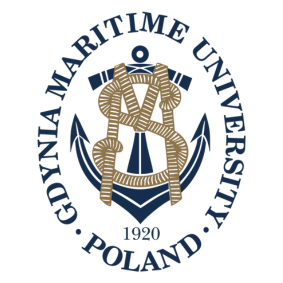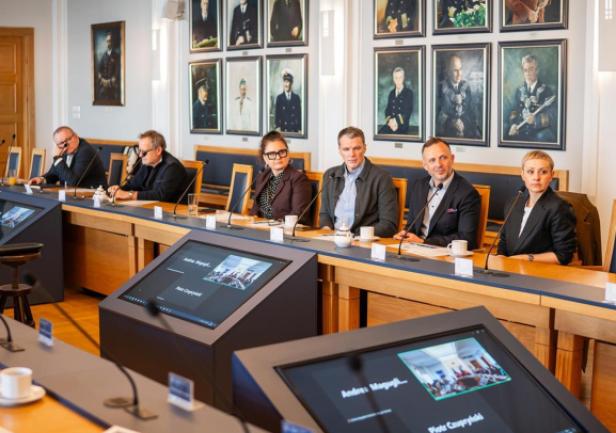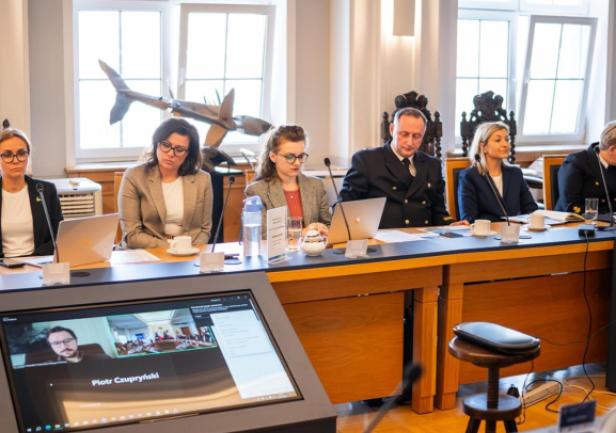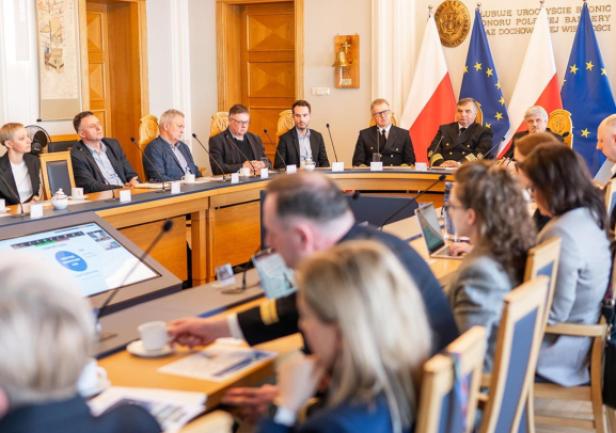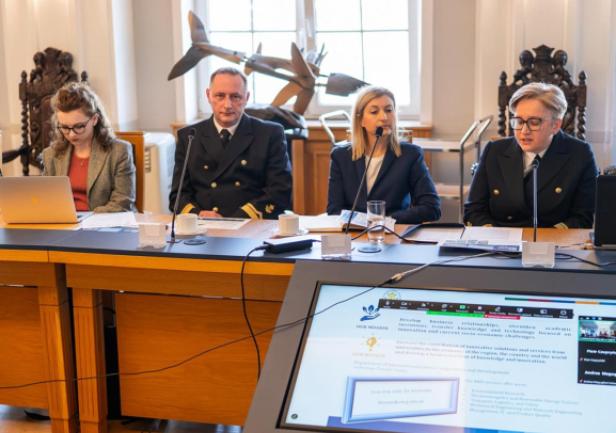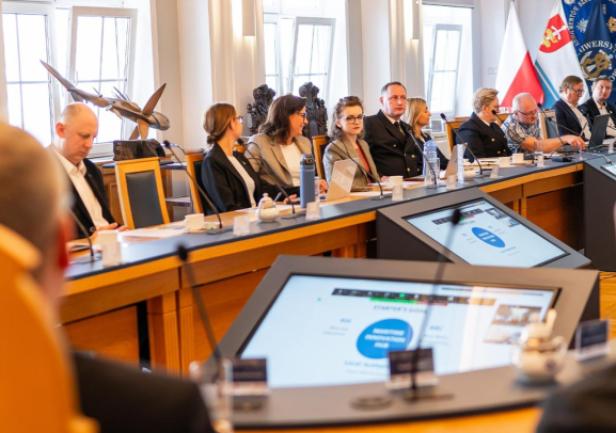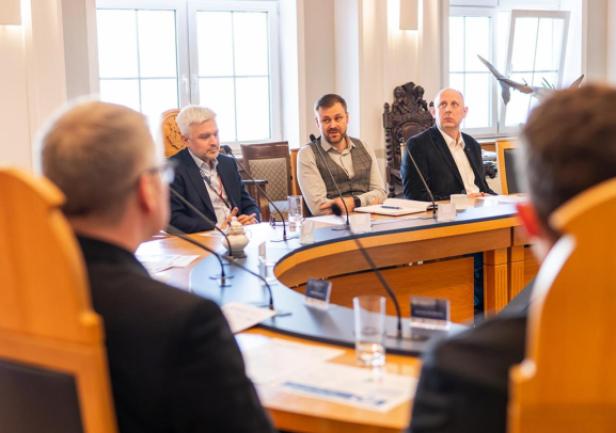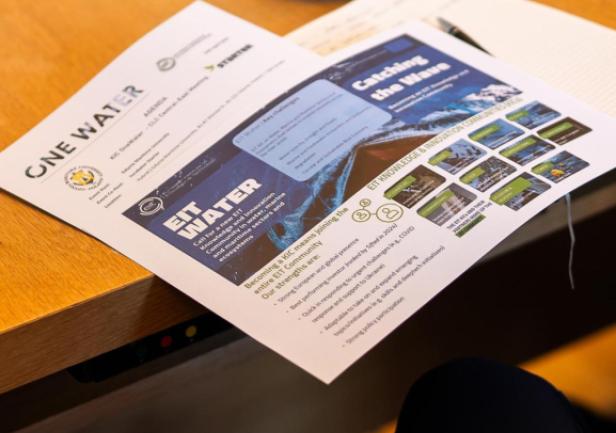GMU Hosts First One Water Knowledge and Innovation Community Meeting
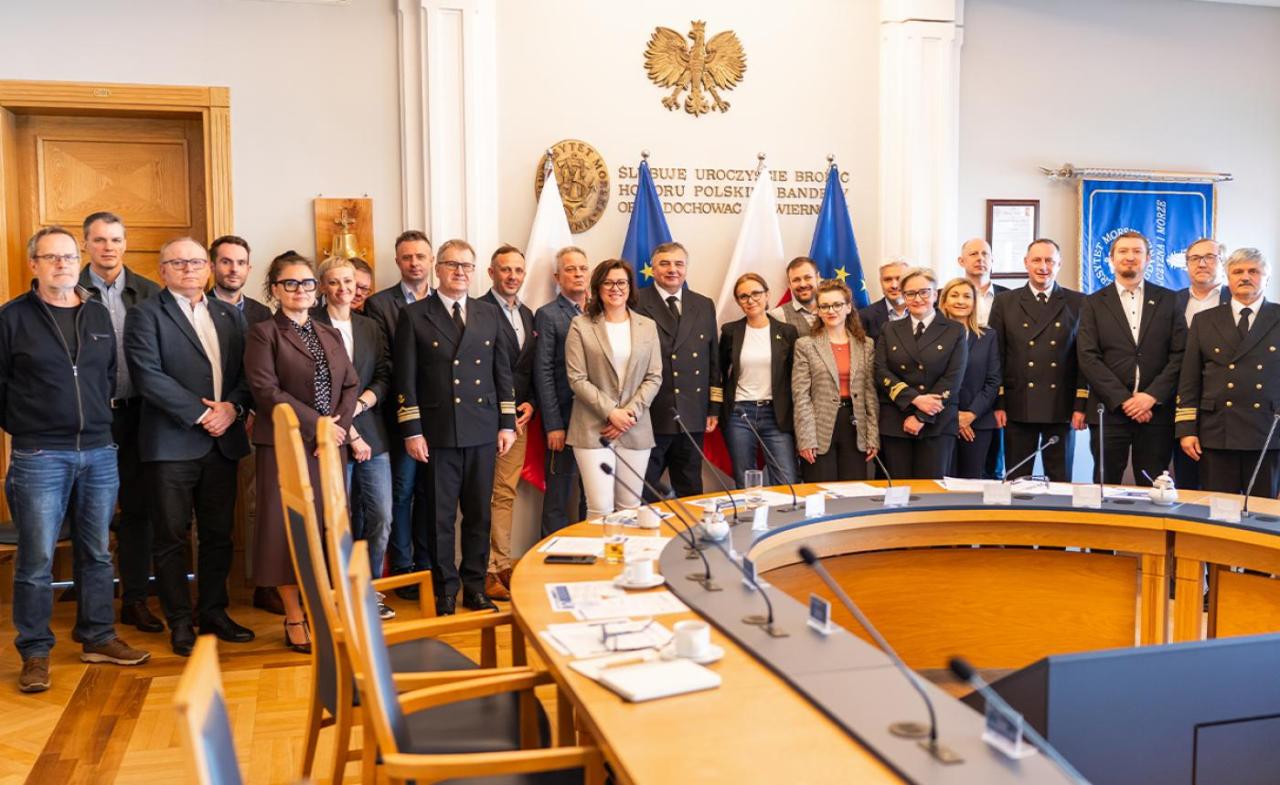
Gdynia Maritime University is developing a local innovation ecosystem focused on challenges connected with water.
On 15 April 2025, the first meeting for the initiation of the development of a regional innovation ecosystem as part of a European consortium preparing applications within the framework of EIT Call for Proposals 2025 for a new EIT Knowledge and Innovation Community (KIC) on Water, Marine and Maritime Sectors and Ecosystems ('Water') was held at GMU.
It will be the tenth Knowledge and Innovation Community of the European Institute of Innovation and Technology. As a Baltic Sea country, Poland fits perfectly into the objectives of the European Commission and the challenges set for research and educational institutions as well as business communities in terms of cooperation across sectors and ecosystems related to water. The initiatives undertaken by the University as part of the consortium are in accordance with the GMU Development Strategy for the years 2024-2028.
Taking part in the meeting were 12 companies from sectors connected with maritime and water. Polish Ocean Lines, the Management Board of the Port of Gdańsk, the Management Board of the Port of Gdynia, Baltic Hub Container Terminal, District Heating Company (OPEC), Trident BMC, HG Solutions, Transition Technologies, PGE EC, as well as research units from the Oceanology Institute at the Polish Academy of Sciences and the University of Bergen. The co-host of this unique event was the Gdańsk Entrepreneurial Foundation - Inkubator Starter, which, as part of the regional innovation centre, will complement GMU's competencies in entrepreneurship and the environment to support the development of start-ups.
The event was opened by HM The Rector of GMU Professor Adam Weintrit, Adam Weintrit, who welcomed the guests in the Senate Hall, highlighting the university's history and its significance in the region. The meeting was then begun by Professor Tomasz Tarasiuk, Deputy Rector for Internationalisation, Cooperation and Development, who outlined the aim of the meeting and the mission for the creation of a regional innovation centre and drew attention to the significance of the initiative for Pomerania and Poland and the strength of the synergy of science and business resulting from the appropriate combination of human resources, competencies and infrastructure. Taking part in the meeting from GMU were also Dr Dariusz Barbucha, Deputy Rector for Science; Marcin Kalinowski, Head of the Economics and Spatial Policy Department at the GMU Maritime Institute and Dr Magdalena Kukowska-Kaszuba, Director of the GMU Technology Transfer Office, who discussed the establishment of a new EIT Water community, as well as a regional innovation centre supported by experiences from other communities. She highlighted that the EIT supports innovation so that it can happen at the intersection of research, education, and business for the benefit of the people, with cross-sectoral collaboration being the key tool for its implementation. She also mentioned that the task of the regional innovation hub, located at the heart of the local ecosystem within EIT Water in Poland, will be to strengthen innovation and entrepreneurship, as well as to serve as a key connector between scientists, entrepreneurs, and partners involved in the activities of the EIT Knowledge and Innovation Communities across Europe. Also speaking at the event was the President of Inkubator Starter, Magdalena Wójtowicz, and the Manager of the Start-up Development Team, Ewa Ropela, who spoke of the activities of the local ecosystem and the significance of entrepreneurship and the support given to new companies by the Foundation.
One of the guests at the event was Dr Yekaterina Astaflyeva, Science Officer at the DAM German Association of Maritime Research, who together with Andrea Magugliani, Head of Communications and External Relations in maritime strategy at the University of Bergen, presented the framework of an international project planned under the EIT Water programme. She emphasised the importance of collaboration with leading European partners and access to an advanced support system, including mentoring and funding for innovative projects from the Pomerania region. The sum of the activity of the future regional innovation centre will help to strengthen the position of Polish entities on the international stage.
